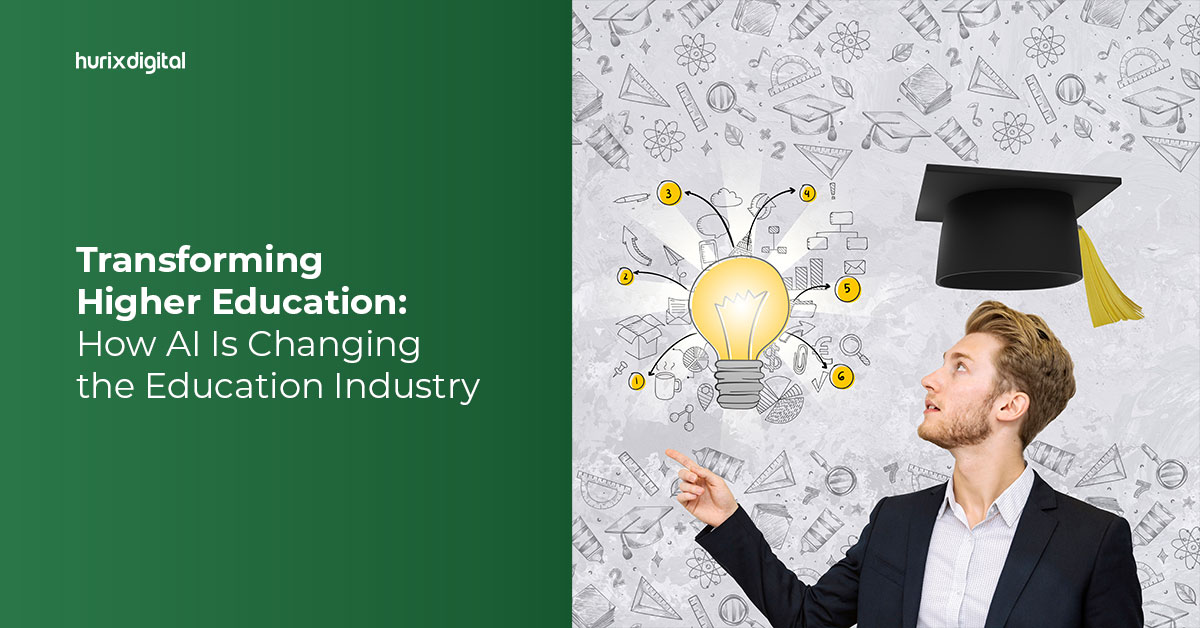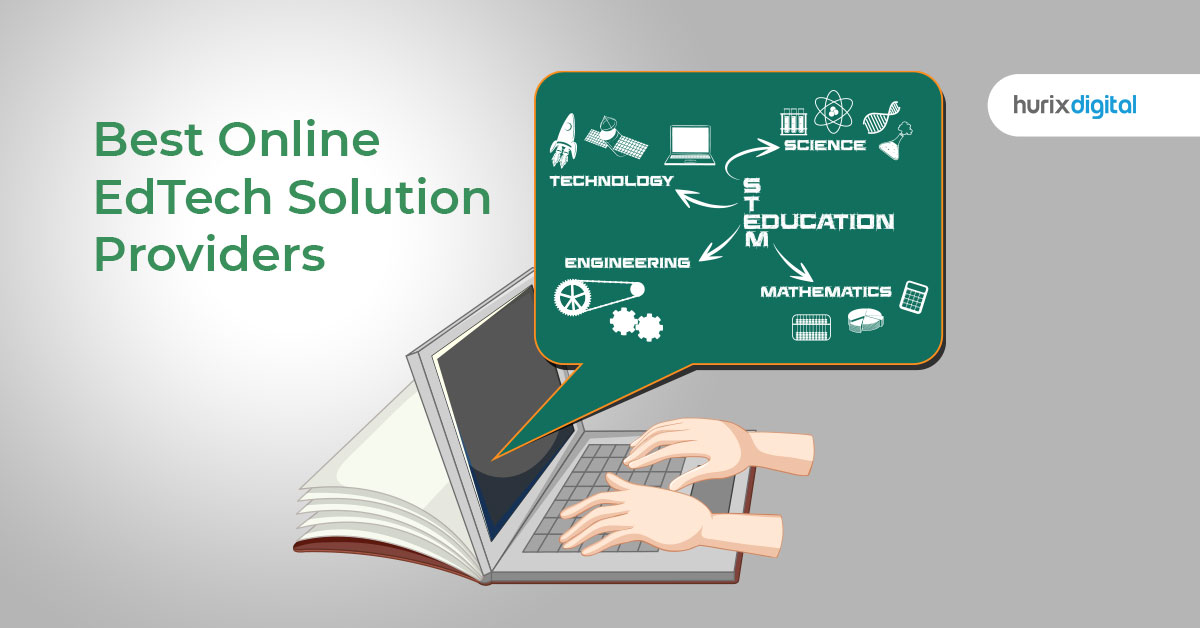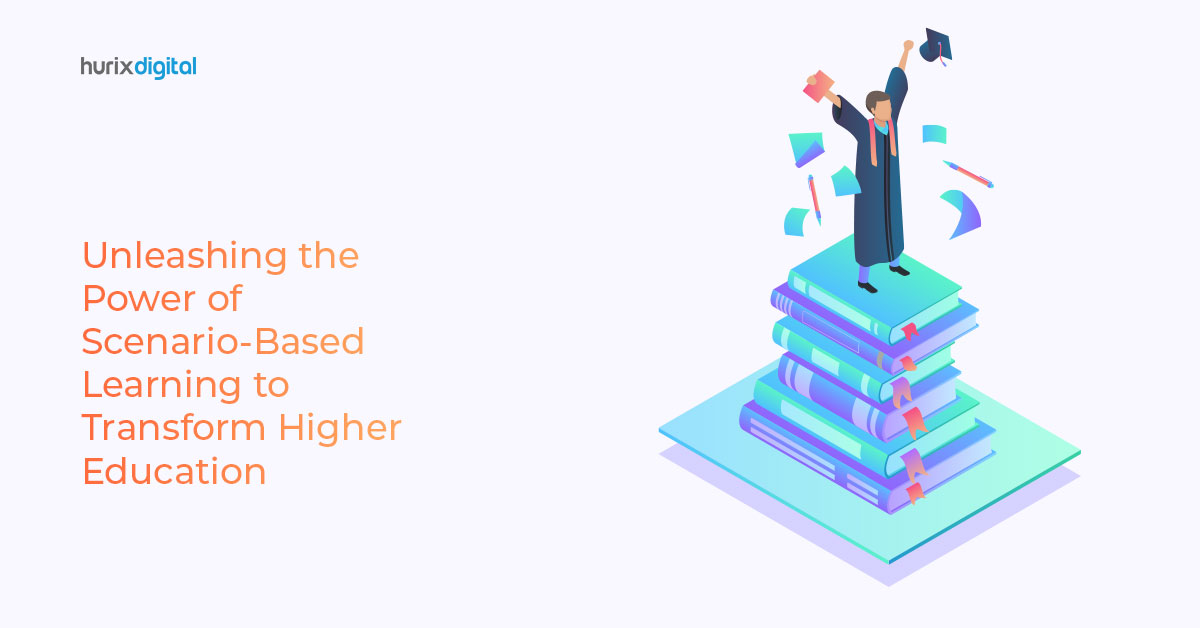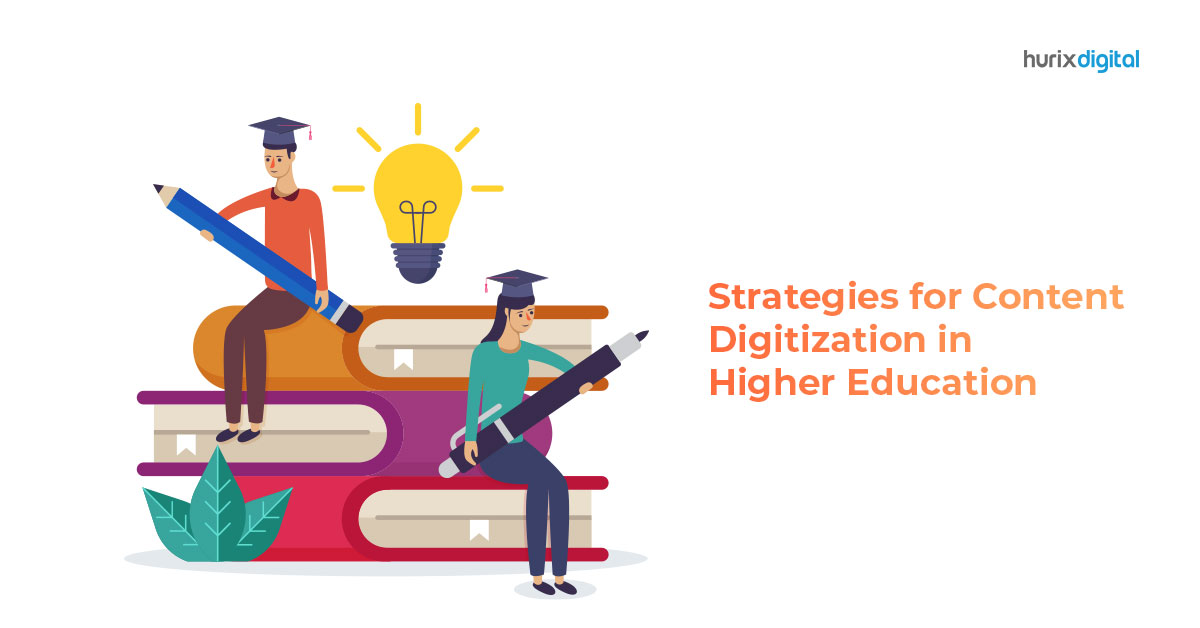
Transforming Higher Education: How AI is Changing the Education Industry?
Summarize with:
Artificial Intelligence has become the new present, reshaping the higher education industry. It can be applied to automate some routine administrative work or make learning individualized.
In recent years, there has been an explosion of tool and platform-based learning for increased engagement, efficiency, and accessibility for both students and faculty.
With the use of AI in the education industry advancing now at a pace never before seen in any field of human endeavour, there’s a critical issue. The way forward is balancing innovation and responsible use of AI in advancing higher education.
In this blog, we will look at the various uses of AI in higher education and how it is helping students.
Table of Contents:
The Future of AI in Education
The market size of AI in the education sector reached a noteworthy USD 4 billion in 2022. Looking ahead, this sector is poised to witness a promising CAGR of over 10% from 2023 to 2032.
The growing demand for personalized learning primarily fuels the rapid expansion of AI in education. This heralds a future where technology seamlessly adapts to individual needs, unlocking new realms of educational possibilities.
However, the future of AI in education goes way beyond personalized learning. Amidst a realm of possibilities, the following are the most likely ways AI will transform education as we know it.
1. Intelligent Tutoring
One of the most promising applications of artificial intelligence in the higher education industry is the creation of intelligent tutoring systems. Advanced algorithms and machine learning enable these systems to present personalized instructions and support to learners.
AI tutors can assess student responses to questions and provide immediate feedback explaining errors and how to improve them. They may also track a student’s progress to identify his areas of strength and weakness, thus providing a customized learning experience.
These systems offer each student a personalized learning path, challenging them while keeping them at the optimal pace for learning. In addition, AI-based tutors can answer questions, clarify existing doubts, or even offer further explanations in natural language.
Also Read: AI-Powered Education: Revolutionizing K12 Learning through Robotics and AI
2. Automated Grading
Another area where AI could make all the difference is automating grades for assignments, exams, or essays. AI can correctly grade these to will save the educator’s time and make the grading objective and uniform.
Further, automated grading systems will give students instant feedback, helping them identify areas to work on immediately. With AI performing the mundane task of grading, educators will have more time to provide quality instruction and relate well to their students.
3. Intelligent Content Creation
The best answer to the question of how AI is changing the world would be Intelligent Content Creation. The AI-driven content generation tool can utilize NLG and data analysis to create customized learning materials, such as interactive textbooks, lesson plans, or instructional videos.
Such AI-based resources will eventually prove beneficial and adaptable to a wide range of learning abilities and diverse student populations, making education accessible and inclusive. In addition, AI can be used to aggregate content and help keep educators in line with recent discoveries and evolution within their respective fields of expertise.
4. Predictive Analytics
AI-powered predictive analytics can revolutionize how institutions of learning identify and support struggling students. AI algorithms can predict early warning signs based on vast amounts of data on academic performance, attendance patterns, and behavioral indicators.
This approach ensures early engagement of the students and tailored support in places where they need it most. Offering such extra resources to the students-personal counseling, academic tutoring, or other services greatly bridges the challenge gap for students to reach their potential.
Predictive analytics can also identify high-achieving students who could benefit from accelerated learning programs or advanced coursework.
5. Intelligent Career Guidance
The most significant potential impact of AI is on the provision of intelligent career advice for students. By analyzing data on career trends, job markets, and various individual aptitudes, AI systems can provide personal recommendations to students on choosing the right education and professions.
AI-powered career guidance platforms insightfully reveal emerging industries, skill requirements, and future job prospects, empowering students to align their education with their desired careers.
The Pitfalls of Over-Reliance on AI in Education
While integrating AI in education brings numerous benefits, it is vital to be conscious of the potential challenges of over-reliance on AI systems. Therefore, this section will highlight the importance of maintaining a holistic approach to teaching and learning.
1. The Human Connection
One of the worst pitfalls of strong dependence on AI in education would be the loss of human touch. Whichever level of sophistication and innovation the AI system develops, teaching is a very human exercise, where appropriate relationships between educators and students deepen engagement, motivate, and give a sense of belonging.
AI can augment certain areas of education but cannot substitute the rich, empathetic relationships educators establish with their students.
2. Ethical Considerations
As AI becomes more prevalent in education, ethical considerations emerge. Algorithms used in AI systems may be prone to biases, perpetuate inequalities, or inadvertently influence students’ educational paths. Additionally, data privacy and security issues arise when AI systems collect and analyze personal information about students.
It is crucial to implement potent safeguards and transparent policies to mitigate these ethical concerns and ensure fair and equitable access to education for all students.
3. The Loss of Critical Thinking and Creativity
AI systems are excellent at calculating information and answering questions relevant to facts, but they don’t possess advanced levels of understanding and thinking like human educators. Thus, any method of education should develop the problem-solving, analytical thinking, and creative innovation skills needed for success in the 21st century.
Ironically, over-reliance on AI in the education industry would eventually fail to offer students opportunities for deep, critical thinking and creative problem-solving. The key is to strike a balance between not losing the human factor in education and using the power of AI.
4. Excessive Dependency on Technology
Overreliance on AI in education may lead to dependency on technology that can do unintentional damage. Technical glitches, system failures, and limited access to technology can disrupt learning experiences and create inequities among students.
Beyond that, overdependence on AI may impede the development of key skills: digital literacy and critical evaluation of sources. Future educators will need to ensure that students have balanced experience with AI-driven technologies and the development of their skills to navigate and thrive in a technologically saturated world.
Also Read: 5 Time-Saving Digital Assessment Tools for Teachers
Summing Up
The transformative effect of AI in the education industry is undeniable. As AI progresses, it is mandatory for all parties involved to embrace this technological change without being too one-sided about it.
While AI brings numerous benefits, one must not forget that preserving the human touch in education is essential. Striking the right balance between AI-driven technologies and human interactions is the key to unlocking AI’s full potential in the education industry.
Discover the future of digital Learning with Hurix Digital. From AI-powered adaptive learning platforms and virtual classrooms to interactive content creation and learning analytics, we empower institutions to create immersive, scalable, and impactful learning environments.
Get help from our team to discover the future of higher education.
Summarize with:

Senior Vice President – Business Development
at Hurix Digital, with over 25 years of experience in EdTech and workforce learning. He excels in business development, customer relationship management, and scaling digital learning solutions, driving global growth through innovative content, simulations, and AI‑driven training offerings
 A Space for Thoughtful
A Space for Thoughtful 



